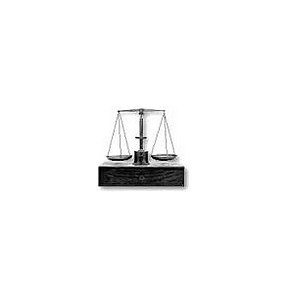Best Defamation Lawyers in Estonia
Share your needs with us, get contacted by law firms.
Free. Takes 2 min.
Or refine your search by selecting a city:
List of the best lawyers in Estonia
About Defamation Law in Estonia
Defamation law in Estonia is primarily governed by the Estonian Penal Code and the Civil Code. Defamation involves making false statements about a person or entity that harm their reputation. These laws aim to balance the protection of one’s reputation with the freedom of expression. In Estonia, both criminal and civil liability can arise from defamatory statements, with avenues for both financial compensation and public apologies being available to victims of defamation.
Why You May Need a Lawyer
There are several common situations where one might need legal help concerning defamation in Estonia. These include:
- If you have been publicly accused of a crime or misconduct you did not commit.
- If false statements about you have been published in the media or online, damaging your reputation.
- If you are uncertain whether a statement you want to publish could be considered defamatory.
- If you face legal action for defamation due to something you have said or written.
- To negotiate a settlement or pursue a lawsuit if you feel you have been defamed.
Local Laws Overview
Key aspects of Estonian defamation law include:
- Criminal Code: Contains provisions that criminalize certain defamatory actions, particularly if they involve false accusations of a crime.
- Civil Code: Provides for civil claims to seek compensation or retraction of false statements.
- Freedom of Expression: Estonian laws protect freedom of speech, but this freedom is balanced against the right to protect one’s reputation.
- Burden of Proof: The accuser typically must demonstrate that the statements were false and damaging.
- Public and Private Figures: Different standards may apply when the subject of the statement is a public figure, requiring a higher threshold of harm.
Frequently Asked Questions
What is considered defamation in Estonia?
Defamation in Estonia involves making a false statement that harms an individual’s or organization’s reputation. It must be communicated to someone other than the person it’s about.
Can I be sued for defaming someone online?
Yes, online statements are treated the same as traditional media, and you can be sued if they are false and damaging.
Is truth a defense to defamation claims in Estonia?
Yes, if you can prove that the statement is true, it can be a complete defense to a defamation claim.
Can opinions be considered defamatory?
Generally, opinions are not considered defamatory as long as they cannot be proven true or false and are clearly identified as opinions.
How long do I have to file a defamation lawsuit?
The limitation period for filing a defamation lawsuit in Estonia under civil law is generally three years.
What remedies are available for defamation victims?
Victims may receive financial compensation, retractions, or public apologies, depending on the court's decision.
Are there different standards for defaming a public figure?
Yes, defamatory claims against public figures may require a higher threshold of proof, particularly concerning actual harm.
What is the role of intent in defamation cases?
Intent may affect the level of damages awarded but isn't generally a necessary element to prove defamation in civil cases.
How does Estonian law treat anonymous defamatory statements?
Anonymity does not protect the speaker from liability. Efforts can be made to uncover the identity of anonymous sources.
Can a company be a victim of defamation?
Yes, both individuals and business entities can be victims of defamation if false statements damage their reputation.
Additional Resources
The following resources can provide additional information and assistance:
- Estonian Bar Association: Offers a list of practicing lawyers specializing in defamation and related areas.
- Ministry of Justice: Provides updates on legal reforms and guidelines about Estonian defamation law.
- Consumer Protection Board: Can assist in cases where defamatory claims relate to consumer products or services.
Next Steps
If you believe you need legal assistance regarding defamation in Estonia, consider the following steps:
- Document the Defamation: Gather all evidence, such as emails, social media posts, or articles, that support your defamation claim.
- Consult a Lawyer: Contact a lawyer who specializes in defamation law to discuss your case and understand your legal options.
- Consider Mediation: Before pursuing legal action, consider mediation as a collaborative way to resolve the issue.
- File a Claim: If necessary, work with your lawyer to file a formal defamation claim in accordance with Estonian law.
Lawzana helps you find the best lawyers and law firms in Estonia through a curated and pre-screened list of qualified legal professionals. Our platform offers rankings and detailed profiles of attorneys and law firms, allowing you to compare based on practice areas, including Defamation, experience, and client feedback.
Each profile includes a description of the firm's areas of practice, client reviews, team members and partners, year of establishment, spoken languages, office locations, contact information, social media presence, and any published articles or resources. Most firms on our platform speak English and are experienced in both local and international legal matters.
Get a quote from top-rated law firms in Estonia — quickly, securely, and without unnecessary hassle.
Disclaimer:
The information provided on this page is for general informational purposes only and does not constitute legal advice. While we strive to ensure the accuracy and relevance of the content, legal information may change over time, and interpretations of the law can vary. You should always consult with a qualified legal professional for advice specific to your situation.
We disclaim all liability for actions taken or not taken based on the content of this page. If you believe any information is incorrect or outdated, please contact us, and we will review and update it where appropriate.
Browse defamation law firms by city in Estonia
Refine your search by selecting a city.










